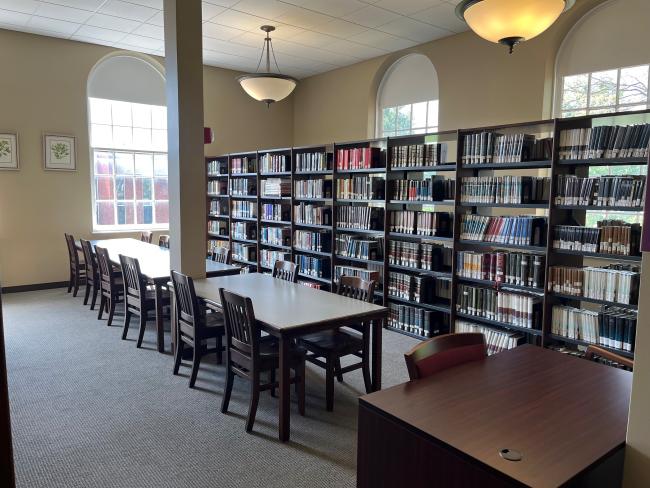Spring 2020 has brought each of us new challenges, uncertain times, and has required significant adjustments to our daily lives. Many of us may be experiencing fear, anxiety, depression, or feelings of isolation. During this time, it is important that each of us take assessment of our mental health regularly and understand that our mental and emotional wellbeing is a vital part of remaining resilient throughout these challenges. One of the best things we can do for ourselves is to establish healthy routines and rhythms. Routines can help alleviate stress and provide predictability in an unpredictable time. Throughout this period of social distancing and stay at home orders, it is easy for the boundaries and schedules that usually provide us with structure to disappear, leaving us with hours and days that become hard to differentiate. Healthy routines and rhythms can be critical in safeguarding our mental health, while also keeping us productive and keeping our bodies healthy!
Tips for Healthy Routines & Rhythms
- Get Some Sleep
Sleep supports our mental and physical health in powerful ways. Set a bedtime and stick to it. Decide when you want to wake up, allowing time for a healthy morning routine, and count backward to determine the best time for you to go to sleep. Most adults need 7-9 hours to function well and feel their best.
- Consider Screen Time
Think about when it might be helpful for you to turn off screens for the day. For many, an hour before bed works well. We are working, learning, and interacting virtually right now, resulting in even more screen time than usual. While technology is a gift in this season, it is also helpful to consider how to spend some time unplugged. Schedule a time to turn off the screens and do something that relaxes or fills you up, such as taking a walk, reading, or drawing.
- Get Dressed
While it’s easy to stay in pajamas all day, getting ready for the day can have power effects on your productivity and your mood. Once you get up in the morning, make getting dressed and cleaned up part of your routine. It doesn’t have to be your usual full routine, but some clean clothes and basic personal hygiene can go a long way in setting up your day well.
- Stick to a Daily Schedule
Days can easily blend together and it’s possible to feel as though schoolwork never stops or to struggle to find motivation to get to work. Determine a schedule that allows time for attending class, studying, and completing assignments, just as you would have on campus. However, also determine when you will ‘log out’ for the day and fill the time with fun activities, rest, or time with loved ones. Schedule time to complete essential tasks, but also schedule time to do what anchors you. Start with your wake up time, include essential morning routine items (i.e. get ready, coffee, exercise, personal devotions, breakfast, walk the dog, etc.), and continue throughout your day. Don’t forget to include breaks, meals, and connection with others!
- Manage Media Consumption
Staying informed and connected is critical during this time, but too much can have a negative impact on our mental health. Set a time during the day to check the news in order to stay informed, but resist the urge to refresh the feed throughout the day.
- Stay Connected
While social media can be a great way to stay connected, it also has the potential to support feelings of loneliness and isolation. It can also lead to information overload or repeated exposure to negativity and unhealthy conflict. Reflect on how social media can best serve you as a tool to stay connected to friends, while also staying within boundaries of healthy use. Perhaps an hourly limit or removing the apps from your phone after a certain time of day might be helpful. Alternatively, avoiding ‘passive’ connection via scrolling and replacing it with active connection such as talking on the phone or video chatting can help us feel connected to others, while avoiding the negative aspects of social media. Staying connected regularly is imperative to our wellbeing, so include personal connection with others, whether in your home or virtually, into your daily schedule!
- Eat & Hydrate
Taking care of our physical bodies is an essential component of mental wellness. Do your best to eat 3 meals a day and to remain hydrated. Use a water bottle and refill throughout the day or track your water consumption in an app or journal. Brainstorm easy, healthy snacks that you can turn to for a boost when your energy dips. If necessary, schedule specific breakfast, lunch & dinner times to ensure you aren’t skipping meals unintentionally.
- Keep Moving
Don’t forget time to exercise. You may not be able to go to the gym or play the sport you usually do, but even a neighborhood walk or YouTube work out video can help keep you moving and healthy. It is easy to become sedentary while we are in one location all of the time, but developing a simple & accessible exercise routine can boost our mood and reduce negative impacts of our current situations. Include your routine in your daily schedule and set reminders so you don’t forget!
- Be Still
Lastly, consider making time for the rhythm of stillness. This may look like time in prayer or utilizing a meditation app (we recommend Calm or Sanvello!). Give yourself time to be still, quiet your mind, and relax. Including this in your daily or weekly schedule can provide a great respite to the world around us and prepare our bodies, souls, and minds to engage effectively with our lives!
Download Sanvello (the number one app for stress, anxiety & depression)
Wellness Resources
Click below to download the complete wellness guide, developed by Waynesburg University's Pathways Center team. This guide includes resources for mental, spiritual and physical wellness, as well as suggestions for taking a break.


